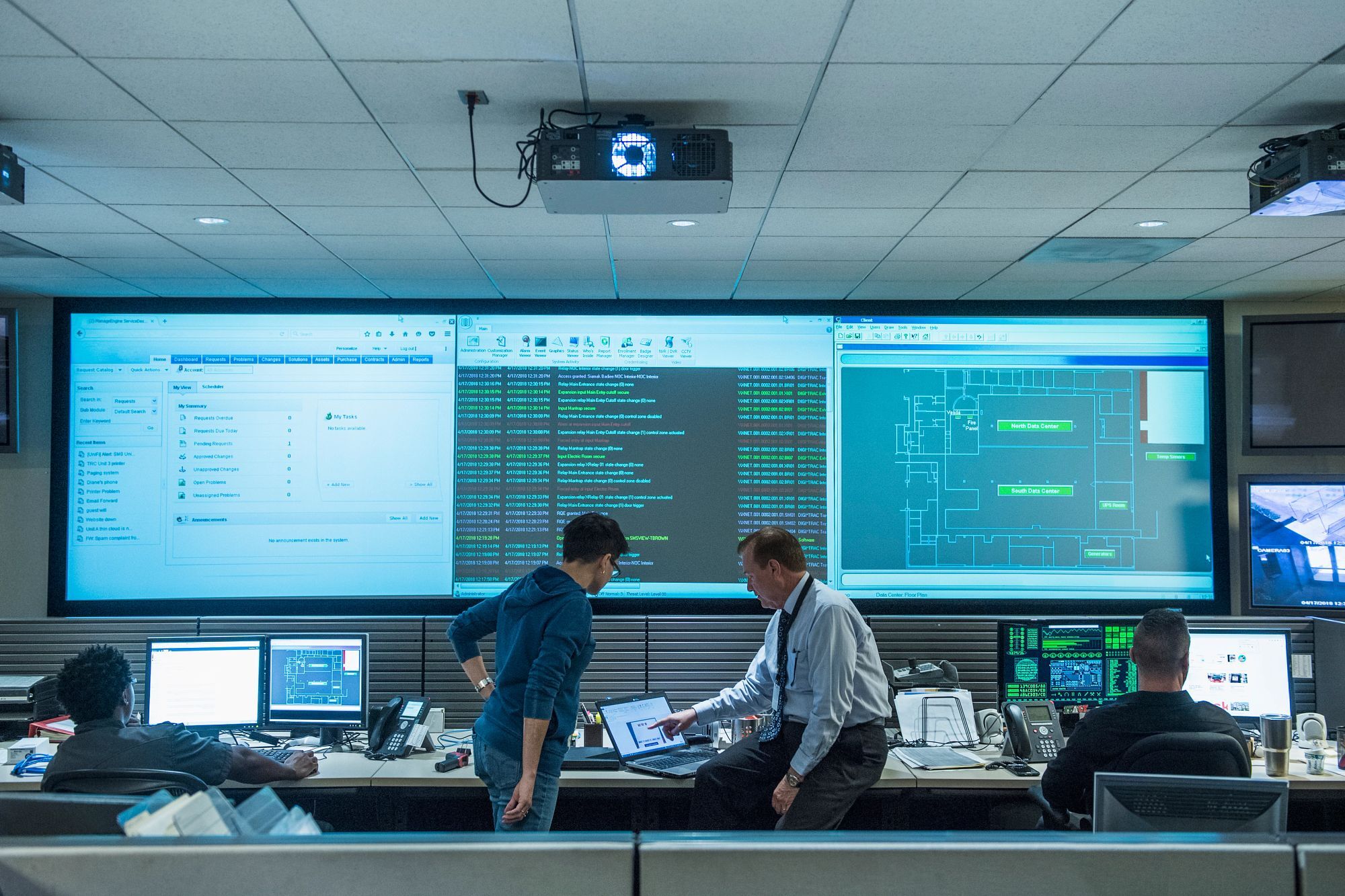Inside BioPharma 4.0: A Game-Changer in Manufacturing Innovation

What is Biopharma 4.0?
Biopharma 4.0 is a specialized framework within Pharma 4.0, uniquely tailored to the context of biopharmaceutical manufacturing. It introduces increased connectivity, productivity, and compliance, aiming to respond effectively to emerging challenges in the biopharma sector.
Integrating industry 4.0 technologies
1. Automation:
Automation takes center stage in Biopharma Manufacturing 4.0, where robotic systems and intelligent machines streamline complex processes, reducing human errors and increasing overall operational efficiency. From production lines to quality control, automation ensures precision and consistency, setting the foundation for a new era in biopharmaceutical production.
2. Data Analytics:
Data analytics emerges as a cornerstone, empowering manufacturers with actionable insights. The vast data generated throughout the biopharmaceutical production lifecycle is processed and interpreted, allowing for data-driven decisions. Predictive analytics becomes instrumental, enabling the anticipation of issues before they arise and contributing to proactive quality management and process optimization.
3. Artificial Intelligence (AI):
Artificial Intelligence (AI) introduces a transformative element to Biopharma Manufacturing 4.0. AI algorithms analyze complex biological data, optimize processes, reduce downtime through predictive maintenance, and enhance quality control. Machines with AI capabilities learn from data, adapt to changing conditions, and make decisions with minimal human intervention, revolutionizing decision-making in the biopharmaceutical sector.
Evolution of talent in biomanufacturing
The fast-growing biomanufacturing industry demands a workforce with a resourceful skill set aligned with the Biopharma Manufacturing 4.0 model. Cross-functional teams, blending expertise in pharmaceuticals, sciences, information technology (IT), and mathematics, are crucial for success. The evolution of talent involves ongoing training and development programs, ensuring managers and leaders are experts at navigating the complexities of Biopharma Manufacturing 4.0 approaches.
Critical components of Biopharma 4.0
Robotics and automation: Organizing and updating the manufacturing process, reducing manual intervention, and increasing operational efficiency through integrating robotics and automation.
Big data analytics: Processing and analyzing extensive data generated in biopharmaceutical processes provide valuable insights, contributing to decision-making and process optimization.
Artificial intelligence (AI): AI-driven systems optimize production parameters, reduce downtime through predictive maintenance, and enhance quality control by recognizing complex patterns indicative of product defects in biopharma.
Blockchain: Ensuring data integrity, enhancing traceability, and contributing to regulatory compliance by leveraging blockchain's strengths in biopharma.
Cloud storage: Secure cloud storage facilitates real-time access to diverse data types, supporting collaborative and data-driven decision-making specific to the difficulties of biopharmaceutical manufacturing.
Internet of things (IoT): Sensors monitor and control critical variables, creating a more connected and responsive production environment specific to biopharmaceuticals.
Remote communication technologies: Facilitating real-time collaboration across stakeholders in the biopharmaceutical value chain, ensuring seamless communication from researchers and clinicians to patients and regulators.
Seven use cases of biopharma manufacturing
Electronic Batch Records:
Biopharma 4.0 tools contribute to continuously collecting and validating manufacturing process data, resulting in easily accessible electronic batch records. This smooth accessibility reduces review times, allowing manufacturers to focus on ensuring the quality of biopharmaceutical products.
Electronic Logbooks:
Implementing electronic logbooks in biopharmaceutical manufacturing ensures data integrity and automates data capture. This reduces time spent on manual processes and facilitates compliance verification through easily accessible digital logs.
Line Clearance:
Digital line clearance applications utilizing IoT and digital work instructions trim complex changeover processes in biopharma. These applications guide operators through SOPs, automatically logging critical parameters, enhancing efficiency, reducing errors, and providing real-time visibility into the biopharmaceutical production process.
Big Data Analytics:
Biopharma 4.0 leverages big data analytics to unlock valuable insights from the massive data generated daily in operations. This data-driven approach enables continuous improvement in quality, efficiency, and overall performance in biopharmaceutical manufacturing.
Process Visibility:
Enhanced process visibility through IoT devices and human-centric applications facilitates incremental improvements in biopharmaceutical manufacturing. This approach enables the identification of training needs, differentiation between operator performance and process design issues, and overall gains in quality and efficiency.
Training for Regulated Environments:
Biopharma-specific training applications powered by manufacturing apps address the significant investment and time challenges associated with workforce training. These applications accelerate onboarding, enable on-the-job training, and simulate processes, ensuring an agile and well-trained workforce in regulated biopharmaceutical environments.
Clean Room Monitoring:
IoT-enabled clean room monitoring systems in biopharma enable real-time responses to changing environmental conditions. This proactive approach saves time and resources, replacing traditional manual monitoring with connected sensors that detect and alert technicians to take necessary actions.
Benefits of Biopharma Manufacturing 4.0
Enhanced Quality Control: Advanced analytics and machine learning identify issues early, ensuring consistent product quality.
Personalized Medicine: The collection and analysis of vast patient data enable the development of personalized treatments in the biopharma sector.
Faster Time to Market: Advanced analytics and machine learning accelerate the drug discovery and development process, reducing the time to market for new biopharmaceutical treatments.
Increased Patient Safety: Biopharma 4.0 improves patient safety through personalized treatments and firm quality control.
Improved Manufacturing Efficiency: Real-time monitoring and automation enhance overall efficiency in biopharmaceutical production.
Improved Supply Chain Management: Real-time supply chain monitoring ensures better tracking, inventory management, and distribution in biopharmaceuticals.

Six challenges in Biopharma Manufacturing 4.0
Cost
The significant investment required for implementing Biopharma Manufacturing 4.0 technologies can challenge smaller biopharma companies or those with limited resources.Talent acquisition and retention
The evolving skill set required for Biopharma Manufacturing 4.0 poses challenges in attracting and retaining talent with expertise in data analytics, AI, and machine learning.Regulatory compliance
Ensuring compliance with firm regulatory standards poses a challenge in implementing advanced technologies in biopharmaceutical manufacturing.Data privacy and security
The sensitive nature of biopharma data requires strong measures to ensure privacy and security in compliance with regulatory standards.Intellectual property protection
As digital technologies play a more significant role in biopharmaceuticals, protecting intellectual property becomes a growing concern, requiring ongoing attention.Integration of legacy systems
Many biopharma companies still rely on outdated systems, posing challenges in integrating these systems with modern digital technologies.
Embracing the future of biopharmaceutical manufacturing
Biopharma Manufacturing 4.0 represents a significant shift in the biopharmaceutical industry, unlocking unmatched efficiency, quality, and innovation opportunities. While challenges exist, the benefits of adopting advanced technologies tailored to biopharma processes make this transition compelling. The future of biopharmaceutical manufacturing lies in the seamless integration of automation, data analytics, and artificial intelligence, creating a connected and agile ecosystem that ensures the delivery of high-quality biopharmaceutical products to meet the evolving demands of the market. As the industry navigates this transformative journey, adaptability, continuous improvement, and a skilled workforce will be essential pillars for success in the era of Biopharma Manufacturing 4.0.
NSF: Charting a course for biopharma manufacturing excellence
Our exploration of Biopharma Manufacturing 4.0 has lit up a path toward excellence and innovation in the biopharmaceutical industry. Through integrating Industry 4.0 technologies and the devoted commitment to quality and compliance exemplified by NSF, we have uncovered opportunities to optimize production processes, enhance product quality, and accelerate time to market.
Biopharma Manufacturing 4.0 is not merely a vision for the future but a tangible reality. Companies that champion the principles of automation, data analytics, and artificial intelligence will drive the industry forward, bringing sustainable growth and delivering impactful solutions to patients around the globe.
NSF can help
Our global team of ex-regulators and industry experts are working at the forefront of pharmaceutical innovation, and they can bring their expertise to your company or project. The expert team is delivering training to upskill and reskill teams to deal with developments in the sector, while our consultants are working on a range of projects from strategy development to ensuring compliance.
Are you ready for Biopharma 4.0?
Talk to NSF today.
What’s New with NSF

NSF Granted Reauthorization as a CMMC Third-Party Assessment Organization
January 8, 2025
NSF Celebrates 50 Years of the Safe Drinking Water Act
December 16, 2024